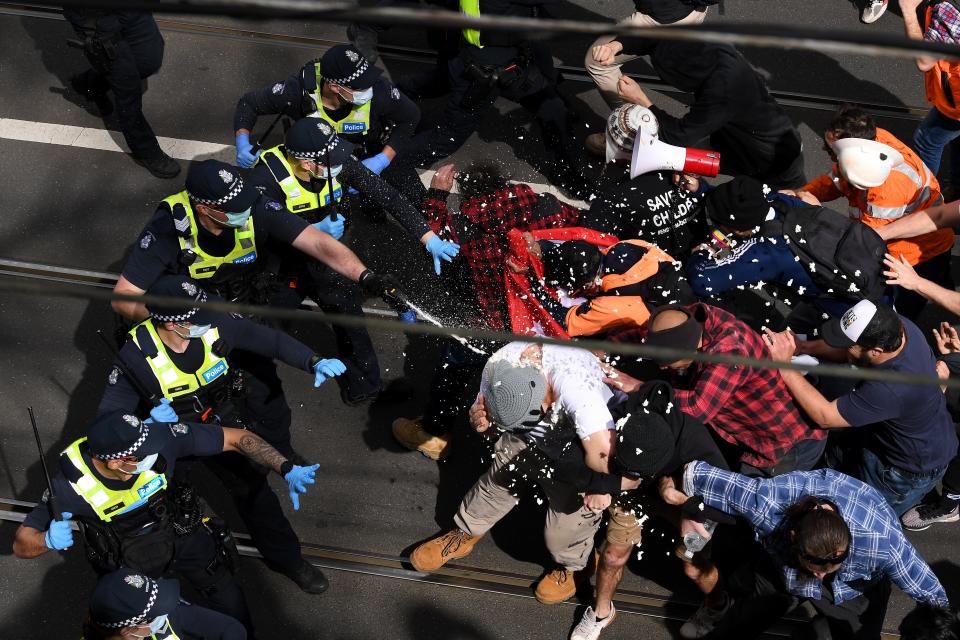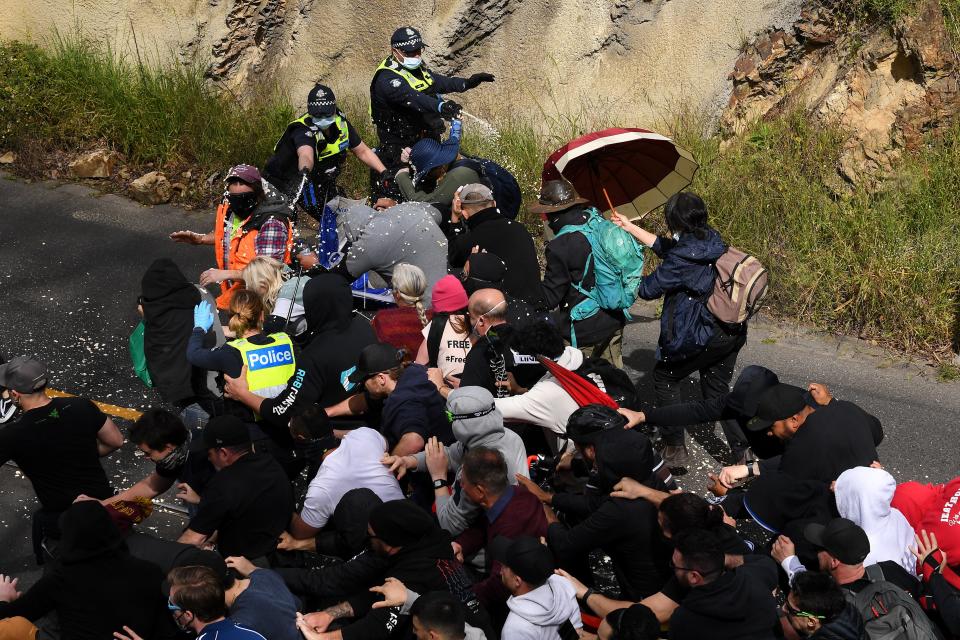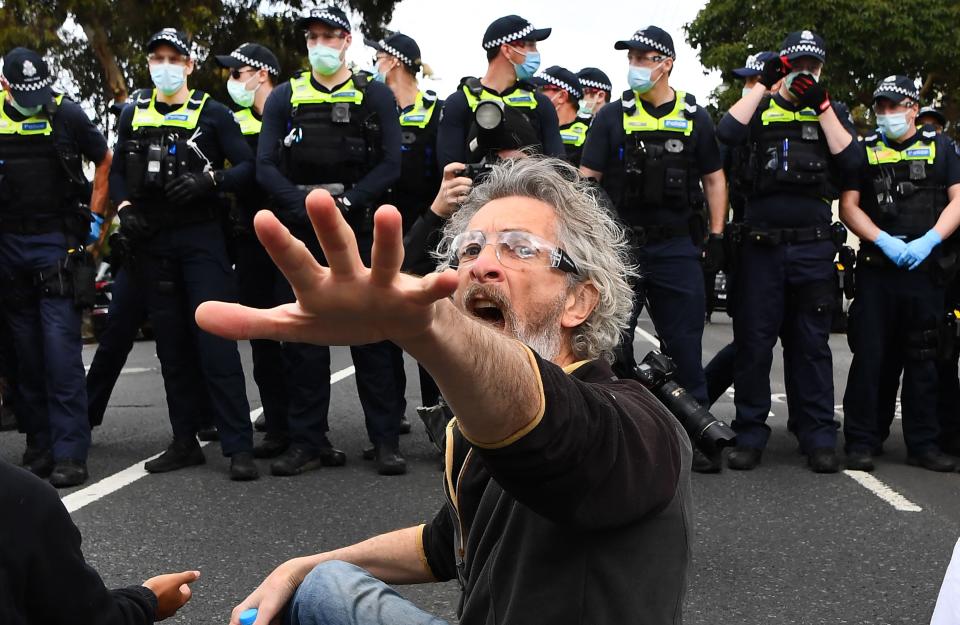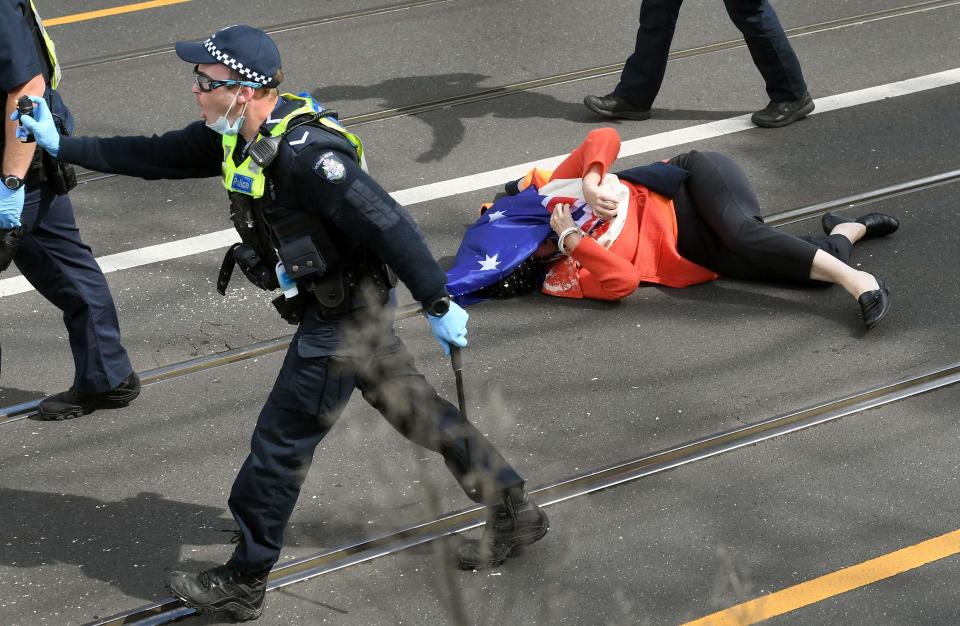Covid travel news: Government to introduce charges for tests, as bookings surge after rules eased
The government will end free provision of lateral flow tests within months in a move that has been criticised as “reckless” by public health chiefs.
Plans to introduce charges for the tests were buried in the government’s Covid winter plan, which was unveiled earlier this week by Sajid Javid, the health secretary.
The relaxation of travel rules is expected to fuel a surge in holiday bookings this weekend, as the amber list was scrapped in favour of a single list of places which will require hotel quarantine on return to England.
Meanwhile, a new tool has found certain groups remain more vulnerable to the virus after vaccination.
The QCovid tool developed by scientists at the University of Oxford shows that immunosuppressed people, and those with dementia, Parkinson’s or chronic disorders such as kidney disease are still at a greater risk of hospitalisation or death from Covid when vaccinated compared to the rest of the population.
Read More
What are the new Covid travel rules?
Travel update: Which countries are on the green list?
Travel update: Which countries are on the red list?
Key Points
Free lateral flow tests to end ‘within months'
Travel firms see bookings spike
UK aviation much slower to recover than rest of Europe, says industry chief
New tool identifies groups most at-risk from Covid after vaccination
Scotland to keep pre-flight tests
13:06 , Liam James
That’s the end of The Independent’s live coverage of the pandemic for today, thank you all for following.
Make sure to check our site for more Covid stories as the day goes on. They will mostly be published on our health page.
Travel surge expected, as firms see bookings spike
07:49 , Liam James
Holiday bookings are expected to soar after the Government announced a relaxation of international travel rules, but concerns have been raised over a changed approach to Covid-19 testing.
Alan French, chief executive of travel firm Thomas Cook, said October half-term bookings were up 200 per cent compared to August and he expected this figure to increase as a result of the changed system.
"Based on our bookings already today, I would expect this weekend to be the biggest of the year so far as people take advantage of the great deals on offer, the new easier rules on testing and the simplified system for international travel," he said.
Andrew Flintham, managing director of holiday company TUI UK, said he had already seen "an uptick in bookings for Turkey in October" and expected a boost in customer confidence with the new rules.
Online travel agency Skyscanner said it saw a 133 per cent spike in traffic in the 30 minutes following Mr Shapps's announcement, while there had been "huge increases" in searches for destinations such as Turkey and the Maldives in anticipation of Friday's news.
New tool identifies groups most at-risk from Covid after vaccination
08:08 , Liam James
Scientists at Oxford university have developed a new tool that predicts which groups are most at risk from Covid-19 after vaccination.
The QCovid tool found that immunosuppressed people and those with dementia, Parkinson’s or chronic disorders such as kidney disease were found to be at a greater risk of hospitalisation or death from Covid after vaccination compared to the rest of the population.
Age and ethnicity also factored into risk outcomes.
Samuel Lovett, Science Correspondent, has the details:

New tool identifies most at-risk groups after Covid vaccination
Travel rule change ‘will make it much easier for customers to understand’
08:25 , Liam James
Chris Parker, director of capacity and commercial performance at DFDS ferries, said his company welcomed the change to the travel rules system.
“It will make it much easier for customers to understand what they need to do,” he told BBC Radio 4's Today programme.
There was a spike in visitors to the DFDS website yesterday, Mr Parker said, and an “uptick” in bookings for October onwards.
Mr Parker estimated the ferry company had this year seen only 20 per cent of the number of bookings seen in 2019.
UK aviation much slower to recover than rest of Europe, says industry chief
08:37 , Liam James
Karen Dee, chief executive of the Airport Operators Association, said UK aviation was recovering from the pandemic far slower than in most other European countries.
Passenger numbers in the UK were only around 20 per cent of a normal summer, while the rest of Europe was seeing around 50-60 per cent, Ms Dee told BBC Radio 4's Today programme.
“That's all down to the complexities we've built in the UK in the testing system,” she said.
Ms Dee also said this summer had been worse than last year's for aviation.
Singapore pauses reopening amid rise in Covid cases
08:55 , Liam James
Singapore reported 935 new Covid cases on Friday, the country’s highest daily total since last April.
The city state has paused the lifting of restrictions as cases have risen. More than 80 per cent of the population has been vaccinated.
New travel changes: What are they, and what are the effects?
09:13 , Liam James
Simon Calder, Travel Correspondent, has put together a guide to the new travel system.
In his opinion, there are two “modest positives” to the changes:

What are the new travel changes and how will rules work?
Scotland won’t ditch pre-flight tests
09:32 , Liam James
The Scottish government has said it will also be making changes to travel rules.
The traffic light system will be dropped but Scotland will not follow England in removing the pre-departure test requirement for the fully vaccinated returning from non-red list countries, the government said.
Michael Matheson, the transport secretary, said there were “concerns” that dropping the test would “weaken our ability to protect the public health of Scotland’s communities”.
Charges to be introduced for Covid lateral flow tests within ‘months’ in ‘reckless’ move
09:50 , Liam James
The free provision of lateral flow tests will end within months, the government has announced.
No date has been set for the introduction of charges, but the winter plan unveiled by Sajid Javid, the health secretary, says the tests will only remain free for “the coming months”.
Public health chiefs and school leaders have united in criticising the “reckless” move.
More on this from Rob Merrick here:

Charges for Covid lateral flow tests within ‘months’ in ‘reckless’ move
India has vaccinated more than 790 million
10:09 , Liam James
More than 790 million people in India have now been vaccinated, a figure higher than the total population of Europe.
A vaccination drive in the country to mark prime minister Narendra Modi’s birthday saw 25 million doses administered on Friday alone, according to the Indian Health Ministry.
Officials say they aim to have administered more than one billion doses by the middle of next month.
‘Be tolerant’ of other parents’ decisions on jabs for their children, says JCVI adviser
10:27 , Liam James
People should be tolerant of parents who have their children vaccinated and of those who decide not to, a government jabs adviser said.
Professor Adam Finn, of the Joint Committee on Vaccination and Immunisation and the University of Bristol, said he is concerned some parents and children could be stigmatised according to what they decide when it comes to coronavirus vaccines for 12 to 15-year-olds.
He told Times Radio: “I absolutely do fear that... I've had a lot of people contact me with very strong views.
”Either that they insist that they wish their children to be immunised without delay, or that they would rather die than have their children immunised, so there are plenty of people out there with very strong views, and those could easily translate into quite aggressive attitudes, one way, in one direction or the other.
“I think people should be tolerant of each other. Parents who have their children immunised should be tolerant of those that decide not to and vice versa because the stakes are not high on either side.”
‘Uncertain times’ coming in pandemic
10:43 , Liam James
Professor Finn warned that the coming months will be “very uncertain times” and urged people to continue taking precautions such as mask wearing.
The JCVI adviser told Times Radio: “With people interacting and behaving more normally, we are going to see the circulation of infections that more or less disappeared last winter, and they are going to provide an additional burden.
“We don't really know what's going to happen with the trend in cases of Covid but it's certainly still circulating. So I think we're entering very uncertain times.
“I would strongly encourage people to go on taking precautions, even though they're not being required to. I certainly am. On a personal basis I use a mask when I'm inside with other people and I'm avoiding social contact beyond a fairly low level, and I think if everybody continues to do that we can bring down the risk to some extent.”
Covid treatment given to Donald Trump to be rolled out to vulnerable patients on NHS
11:01 , Liam James
Ronapreve, a treatment for Covid that was given to Donald Trump, will be available to vulnerable NHS patients in hospital from next week.
The Medicines and Healthcare products Regulatory Agency said the drug could be used to prevent infection, treat symptoms of serious infection, and cut the likelihood of being admitted to hospital.
The government said it had the potential to benefit thousands of patients, with its rollout initially targeting those who have not build an antibody response to Covid.
More on this from Zaina Alibhai:

Covid treatment given to Donald Trump to be rolled out on NHS
Where else is vaccinating children?
11:22 , Liam James
A few other countries besides the UK have approved vaccines for children. Here, the plan is to start vaccinating those aged 12-15 from next week.
Elsewhere, there are much younger children being vaccinated.
In Cambodia and Chile, jabs are being administered to children six and above. Israel has approved jabs for children aged five and above.
United Arab Emirates has approved vaccinations for three-year-olds.
Cuba has begun mass vaccination of children as young as two.
In China, a government disease control expert on Thursday said the country should consider vaccinating children under 12.
In the United States, top health officials believe the vaccine developed by Pfizer and BioNTech could be authorised for children aged 5 to 11 next month.
Australian police clash with anti-lockdown protesters as violence flares in Melbourne and Sydney
11:40 , Liam James
More than 260 people have been arrested in Melbourne and Sydney as police clashed with anti-lockdown protestors, Colin Drury reports.
Violence broke out as 700 people gathered in Melbourne despite some 2,000 officers securing the city centre with check points, barricades and the suspension of all public transport.
Stones, bottles and traffic cones were thrown as the trouble flared on Saturday in the city’s Richmond and Hawthorn neighbourhoods.

Australian police clash with anti-lockdown protesters as violence flares
Pictures from the scene in Melbourne
11:55 , Liam James




11:59 , Liam James
There is also some footage from Melbourne here on Independent TV:

Watch: Anti-lockdown protesters attack police officers in Melbourne
Epidemiologist says Scotland right to stick with tests for travellers
12:18 , Liam James
One of Scotland's leading epidemiologists has backed the Scottish government's decision to keep PCR testing for international travellers or returning residents.
Professor Devi Sridhar, a professor of global public health at Edinburgh University, told BBC Radio Scotland: “Letting go of PCR testing is letting go of one of the main ways we would identify new variants, and be able to even know if it was coming in, if it was being seated.
“And secondly, to be able to catch positive cases that we have tried to control and keep the numbers as low as we can and the pressure off the NHS.”
India passes 800 million Covid vaccinations
12:30 , Liam James
India’s health ministry said that more than 800 million people have now been vaccinated in the country, 10 million since the figure reported a few hours ago.
Pacific island reports first case of Covid
12:49 , Liam James
American Samoa has reported its first ever case of coronavirus.
The governor of the US Pacific Ocean territory said the case was in a fully vaccinated resident who returned from Honolulu in Hawaii earlier in the week.
The traveller had tested negative for the virus before boarding the return flight, officials said.
Around 55,000 people live on the tiny island territory, which sits more than 5,000 miles from the nearest continental landmass.
In graphs: Vaccine protection levels over time
13:03 , Liam James
Series of charts here compiled by The Independent mapping the data on the effectiveness of different vaccines over time:

 Yahoo News
Yahoo News 
